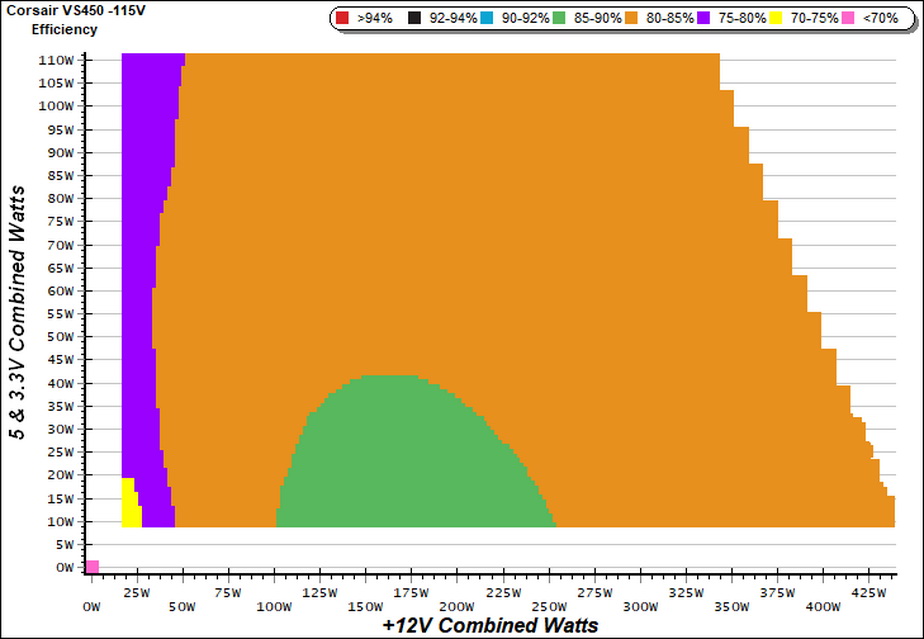Corsair VS450 Power Supply Review: Affordable and Reliable
Why you can trust Tom's Hardware
Protection Features, DC Power Sequencing, Cross-Load Tests and Infrared Images
Protection Features
Check out our Power Supplies 101 article to learn more about PSU protection features.
| Protection Features | |
|---|---|
| OCP | 12V: 48.8A (135.56%), 11.162V 5V: 16.1A (80.5%), 4.357V 3.3V: 28.2A (141%), 3.314v 5VSB: 4.3A (143.33%), 4.939V |
| OPP | >575W (127.78%) 12V: 11.16V |
| OTP | ✓ (160°C @ +12V heat sink) |
| SCP | 12V: ✓ 5V: ✓ 3.3V: ✓ 5VSB: ✓ -12V: ✓ |
| PWR_OK | Accurate but less than <16ms |
| NLO | ✓ |
| SIP | Surge: MOV Inrush: NTC Thermistor |
The 5V rail cannot deliver its nominal power since the overcurrent protection (OCP) is set at 16A, while theoretically, at least, this rail can deliver up to 20A.
The overpower protection (OPP) is set too high, allowing the 12V rail to drop as low as 11.16V. We had to abort this test else the PSU would break. Usually the first sign before an imminent failure are the bottom low voltages. Finally, the power ok signal is lower than 16ms but it is accurate, which is what matters the most.
DC Power Sequencing
According to Intel’s most recent Power Supply Design Guide (revision 1.4), the +12V and 5V outputs must be equal to or greater than the 3.3V rail at all times. Unfortunately, Intel doesn't mention why it is so important to always keep the 3.3V rail's voltage lower than the levels of the other two outputs.
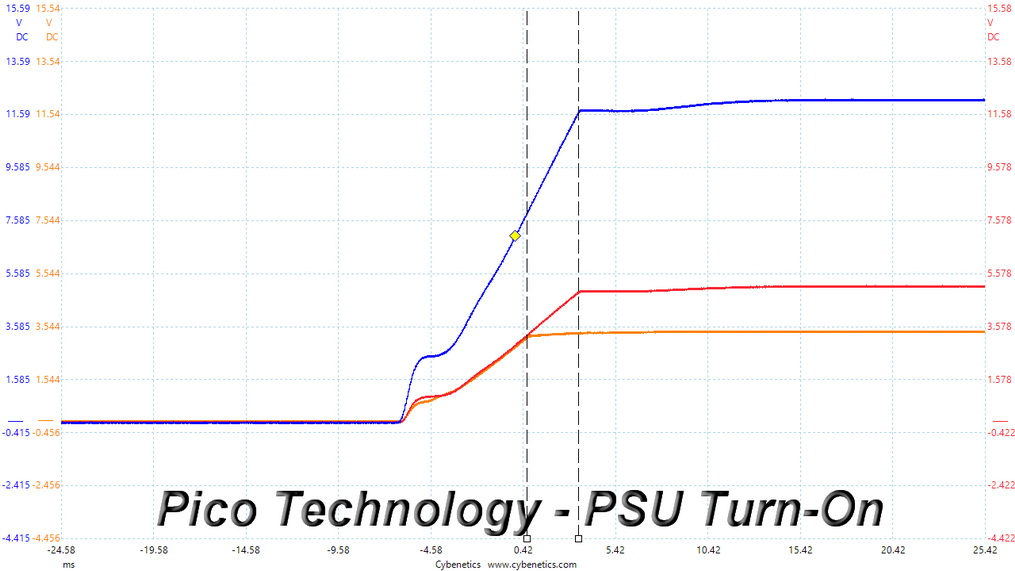
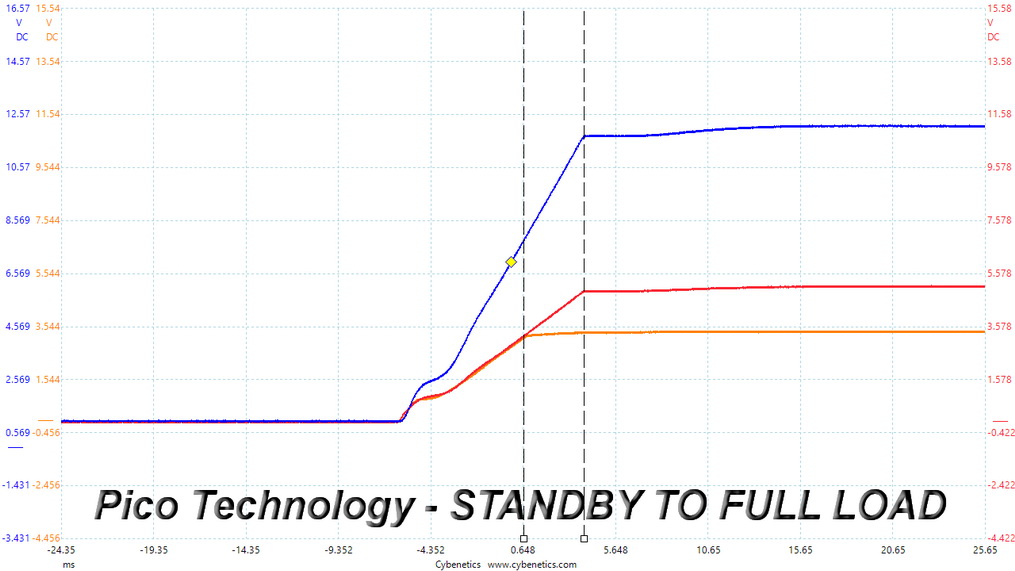
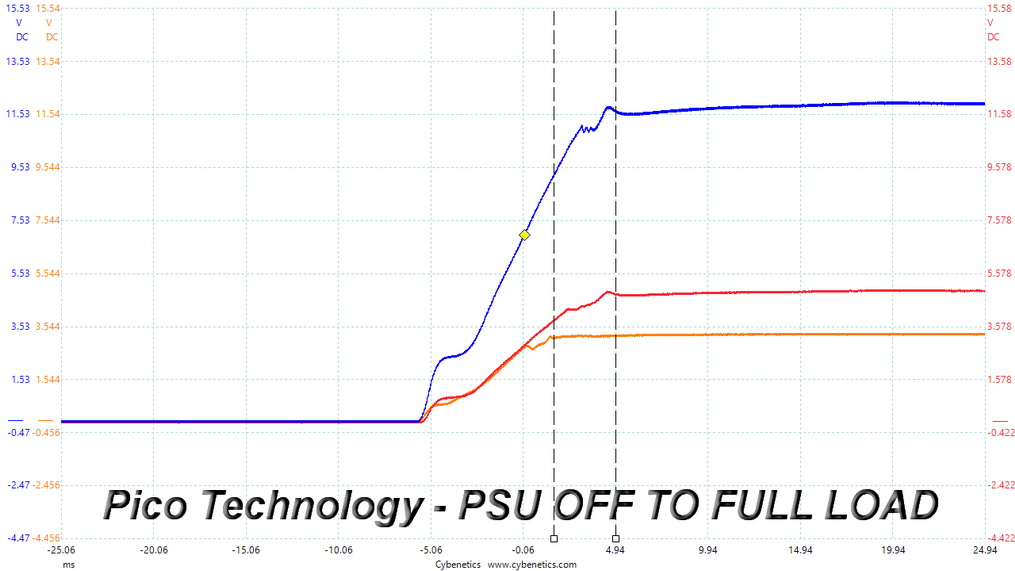
No problems here since the 3.3V rail is always lower than 12V and 5V.
Cross Load Tests
Get Tom's Hardware's best news and in-depth reviews, straight to your inbox.
To generate the following charts, we set our loaders to auto mode through custom-made software before trying more than 25,000 possible load combinations with the +12V, 5V, and 3.3V rails. The deviations in each of the charts below are calculated by taking the nominal values of the rails (12V, 5V, and 3.3V) as point zero. The ambient temperature during testing was between 30 to 32 degrees Celsius (86 to 89.6 degrees Fahrenheit).
Load Regulation Charts
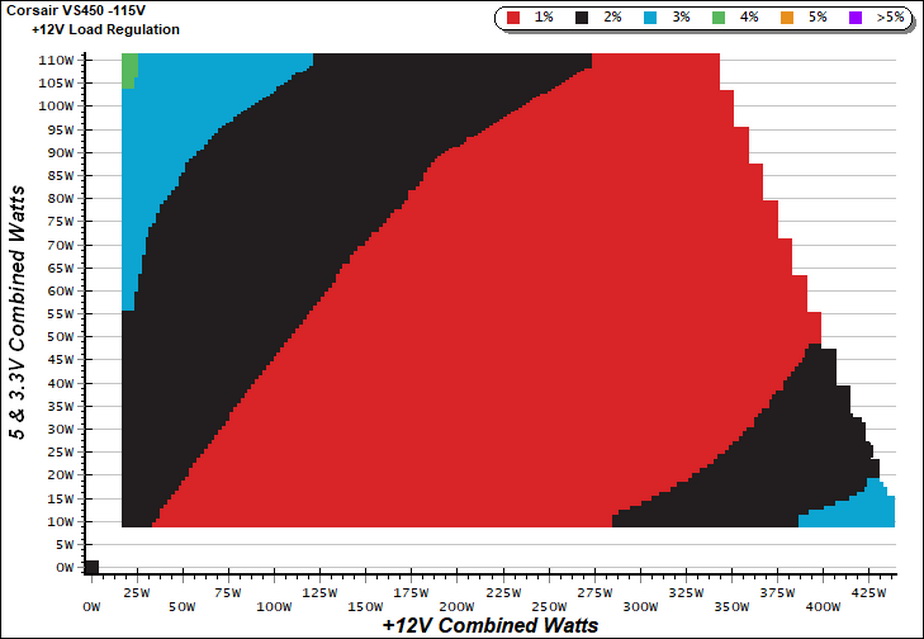
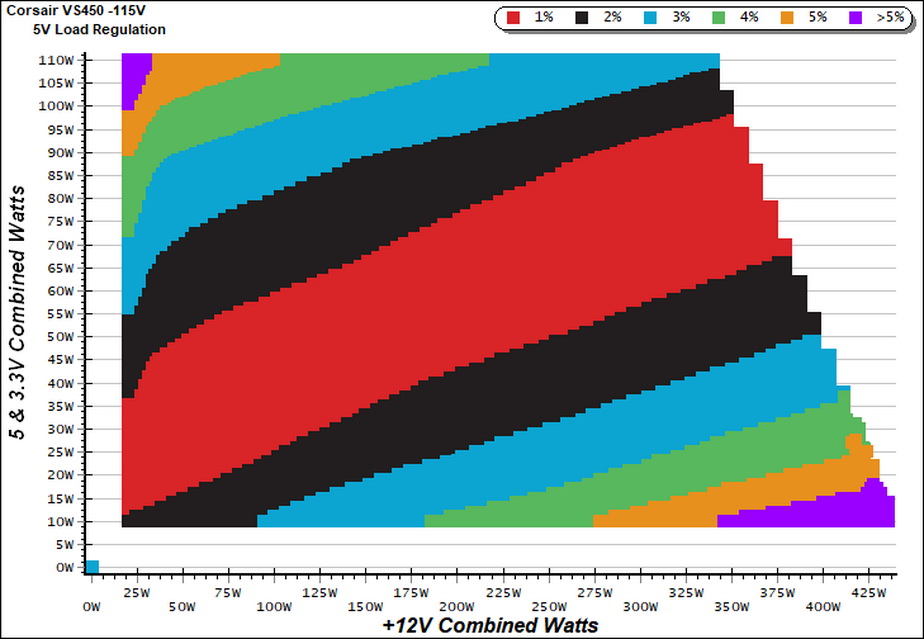
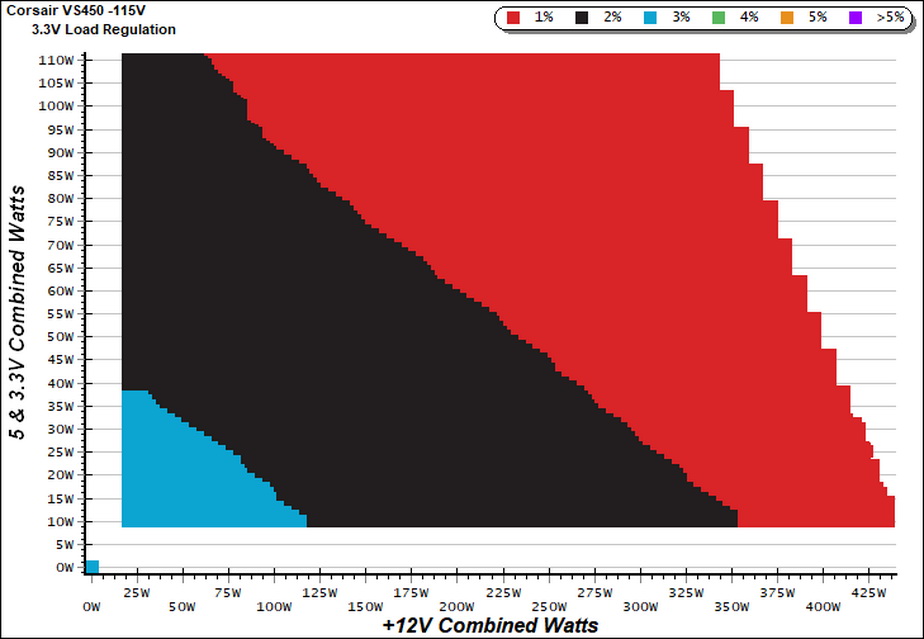
Efficiency Chart
The efficiency levels are low in general. The good region is from 100W to 250W at +12V and with the load on the minor rails staying below 40W.
Ripple Charts
The lower the power supply's ripple the more stable the system will be and less stress will be also applied to its components.
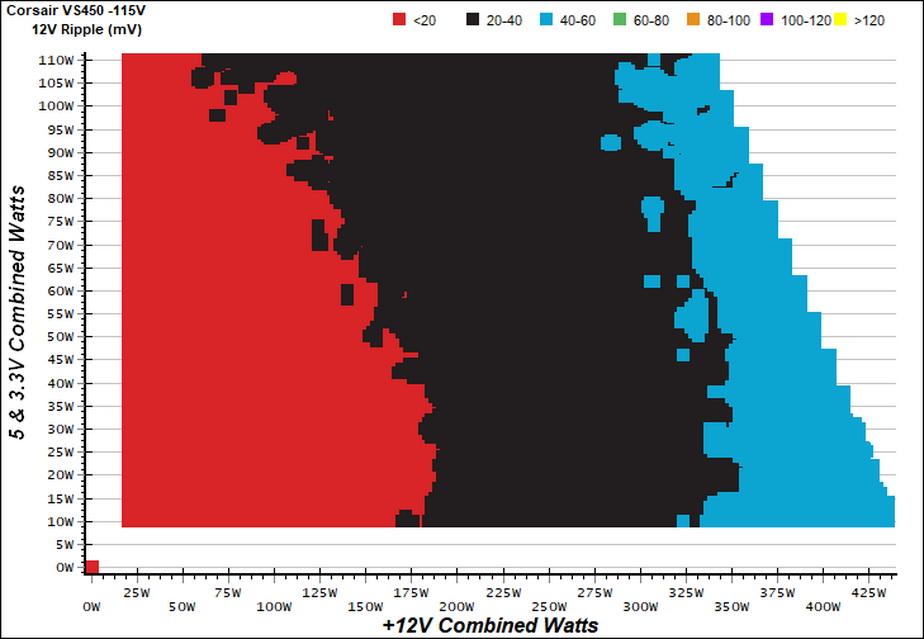
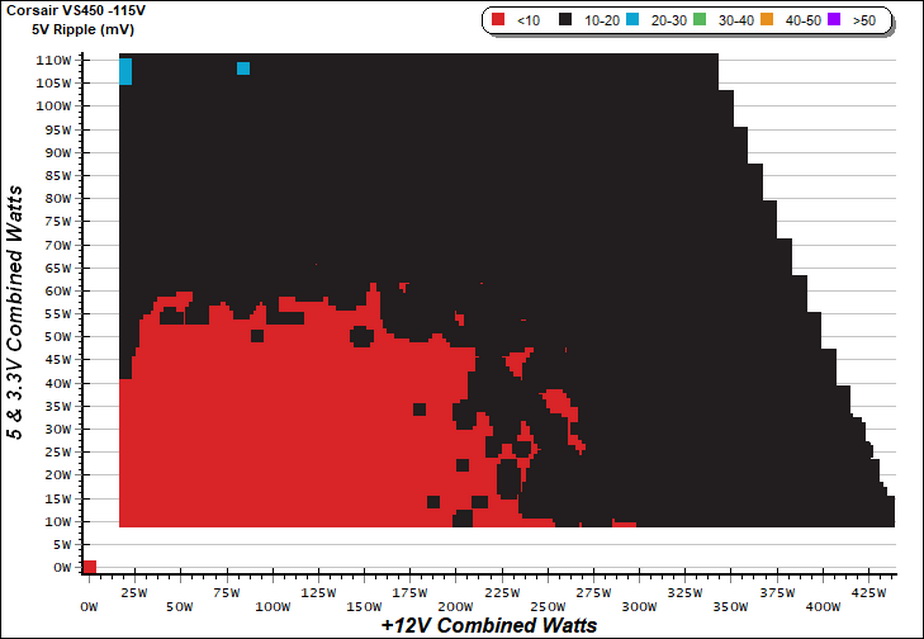
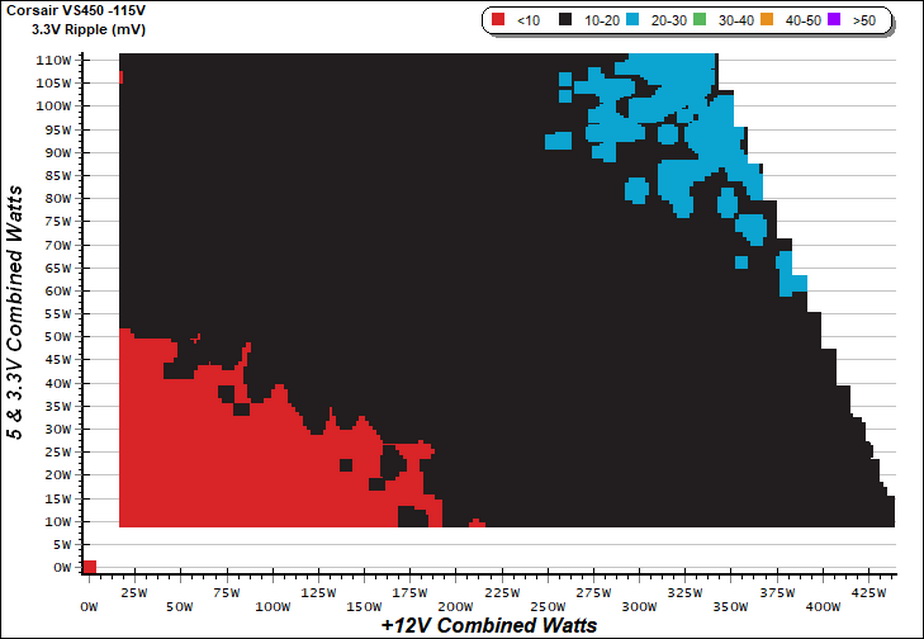
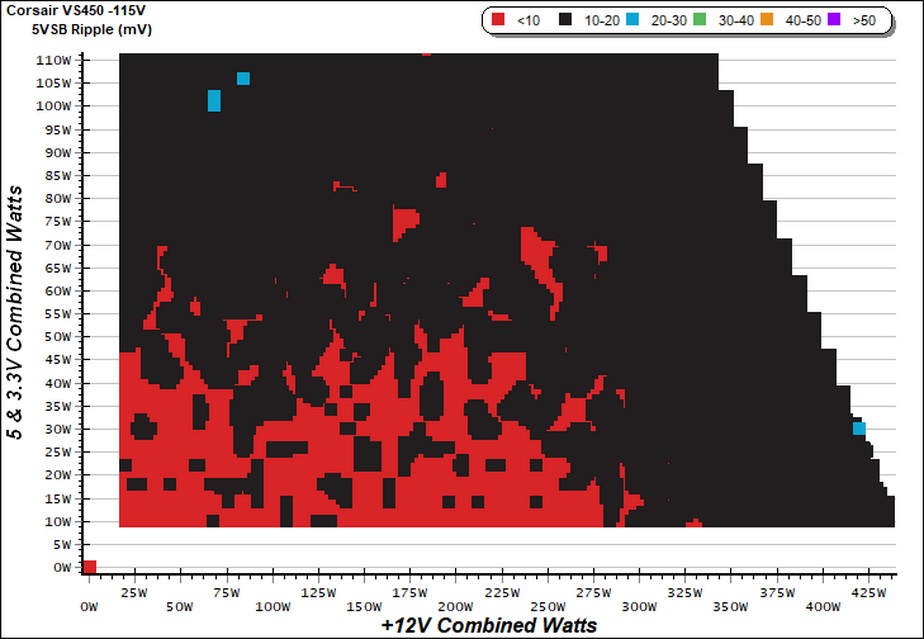
Infrared Images
We apply a half-load for 10 minutes with the PSU's top cover and cooling fan removed before taking photos with a modified FLIR E4 camera able to deliver an IR resolution of 320x240 (76,800 pixels).
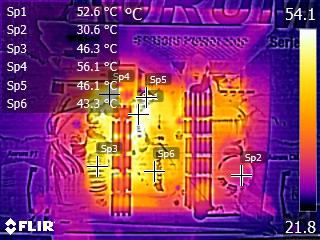
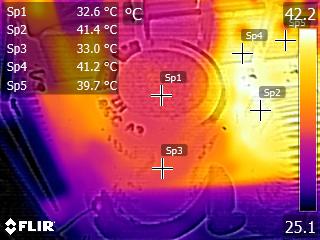
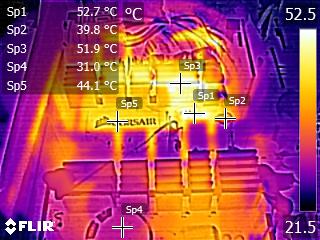
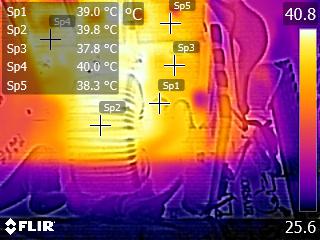
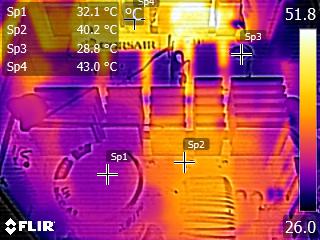
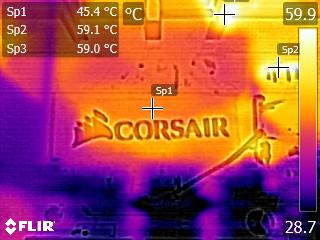
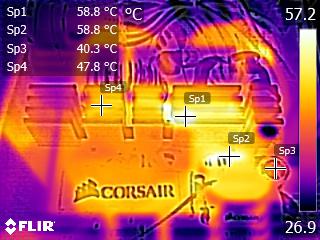
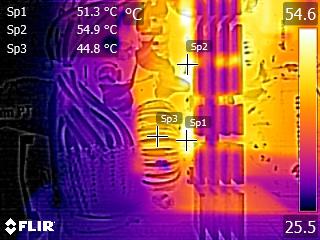
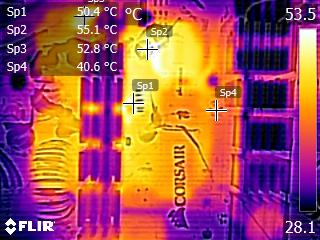
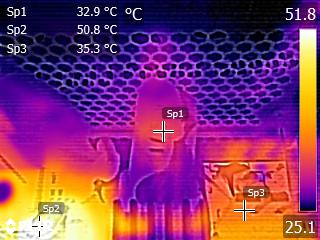
Even with the active cooling deactivated, the temperatures at the internals stay at low levels during these tests. We expected higher temperatures given this platform's low efficiency levels.
MORE: Best Power Supplies
MORE: How We Test Power Supplies
MORE: All Power Supply Content
Current page: Protection Features, DC Power Sequencing, Cross-Load Tests and Infrared Images
Prev Page Load Regulation, Hold-Up Time, Inrush Current, Efficiency and Noise Next Page Transient Response Tests, Ripple Measurements and EMC Pre-Compliance Testing
Aris Mpitziopoulos is a contributing editor at Tom's Hardware, covering PSUs.
